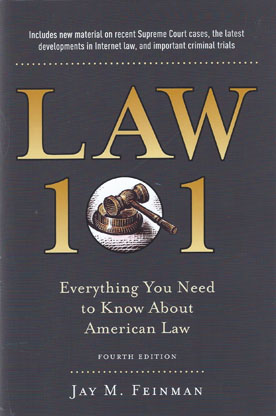
In each of the first three editions of the bestselling Law 101, Jay Feinman gave readers an upbeat and vivid examination of the American legal system. Since the third edition was published in 2010, much has happened: several key Supreme Court cases have been decided, we've seen sensational criminal trials, and the legal system has had to account for the latest developments in Internet law.
This fully updated fourth edition of Law 101 accounts for all this and more, as Feinman once again provides a clear introduction to American law. The book covers all the main subjects taught in the first year of law school, and discusses every facet of the American legal tradition, including constitutional law, the litigation process, and criminal, property, and contracts law.
To accomplish this, Feinman brings in the most noteworthy, infamous, and often outrageous examples and cases. We learn about the case involving scalding coffee that cost McDonald's half a million dollars, the murder trial in Victorian London that gave us the legal definition of insanity, and the epochal decision of Marbury vs. Madison that gave the Supreme Court the power to declare state and federal law unconstitutional.
A key to learning about the law is learning legal vocabulary, and Feinman helps by clarifying terms like "due process" and "equal protection," as well as by drawing distinctions between terms like "murder" and "manslaughter." Above all, though, is that Feinman reveals to readers of all kinds that despite its complexities and quirks, the law is can be understood by everyone.
Perfect for students contemplating law school, journalists covering legislature, or even casual fans of "court-television" shows, Law 101 is a clear and accessible introduction to the American legal system.